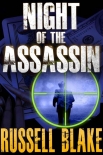The Gangster, Clive Cussler [ebook smartphone txt] 📗

- Author: Clive Cussler
Book online «The Gangster, Clive Cussler [ebook smartphone txt] 📗». Author Clive Cussler
Six hours later, when Grady had collapsed face-first on a cot and most of his young assistants had stumbled home, Marion suddenly whispered, “I’ll be darned.”
“What?” asked Helen.
Marion looked up from a folder of ancient yellowed newspapers. “Grandfather Culp had an affair with a Quaker woman from Poughkeepsie.”
“They printed that in the newspaper?”
“Well, they don’t come out and say it, but it’s pretty clear reading between the lines . . .” She checked the date on the top of the page. “This didn’t come out until after the Civil War. Raven’s Eyrie was a ‘station’ on the Underground Railroad.”
“The Culp’s were Abolitionists? That doesn’t sound like the Culp we know and love.”
“Her name was Julia Reidhead. She was a member of the American Anti-Slavery Society. But according to this, the Hudson Valley was not Abolitionist. They still kept slaves into the early nineteenth century. Only a few Quaker strongholds were against slavery.”
“Grandpa Culp must have been a brave man to be a station master.”
“It doesn’t quite say that. According to this, Julia Reidhead talked him into building a secret entrance through the wall so they could help runaway slaves on their way to Canada. Sounds to me like he did it for love.”
“Was she J. B. Culp’s grandmother?” Helen asked.
“No. She ended up marrying a missionary. They served in India.”
Helen read the story over Marion’s shoulder. “I hadn’t realized the wall was that old.”
“First thing they built. It seems the Culps have never liked other people.”
Antonio Branco walked into J. B. Culp’s trophy room and calmly announced, “The Italian Squad just arrested my assassin.”
“What? Can you bail him out?”
“The Carabinieri confirmed he’s an anarchist. He will stay locked up until your government deports him.”
“How could they confirm it so fast?”
“The Italian Consul General keeps a Carabinieri officer on his staff for just such occasions,” Branco answered drily.
“What a mess! . . . Wait a minute. How did the police know he was yours?”
“They don’t. He was one of many caught in Petrosino’s dragnet.”
“Bloody Isaac Bell put Petrosino up to it.”
“Of course he did,” said Branco. “I would be surprised if he hadn’t. Thanks to Bell, there isn’t an Italian radical who isn’t behind bars or in hiding this morning.”
“We’re running out of time. Roosevelt’s going to be here in two days.”
Branco tugged his watch chain. “Two days and six hours.”
“Well, dammit, you’ll just have to give the job to your ‘gorillas.’”
“No.”
“Why not? They’re killers, aren’t they? All your talk about ‘un-plaguing’ me. Strikebreaking, getting rid of reformers, making enemies disappear?”
“Gorillas are not the tool for this job.”
“Why not?”
“They would bungle it.”
“Then you’ll have to kill him yourself.”
Branco shrugged his broad shoulders as if monumentally unconcerned. “I suspected it would come to this.”
Culp shook his head in disgust. “You sound mighty cool about it. How will you do it?”
“I’ve planned for it.”
“You’ll only get one chance. If you muddle it, you’ll force Roosevelt to hide, and we’ll never get a second shot at him.”
“I planned for it.”
“Do you mean you planned to pull the trigger all along?”
“I never planned to pull a trigger” was Branco’s enigmatic reply, and Culp knew him well enough by now to know he had heard all that Branco would spill on the subject. Instead, he said, “Did you get the Italian Consul General invited to the President’s speech?”
Culp nodded. “Why do you want him there?”
“He will provide a distraction.”
“You don’t know yet how you’re going to do the job.”
“I have ideas,” said Branco.
Marion Morgan and Helen Mills’ report on the Underground Railroad entrance to Raven’s Eyrie emphasized the strong pro-slavery sentiments in the pre–Civil War Hudson Valley. So while the Black Hand Squad watched gates and boat landings, and undercover operatives kept an eye on the siphon tunnel, Isaac Bell and Archie Abbott climbed down from the top of Storm King Mountain. In theory, the Abolitionists’ passage for fugitive slaves would have been more safely hidden in the uphill side of the estate wall rather than in view of the busy river.
Slipping and sliding on a thin coat of ice-crusted snow, the Van Dorns descended within yards of the wall, then scrambled alongside, just above it, clinging from tree to tree on the steep wooded slope. Culp’s estate workers had kept a mown path clear of brush, but the stones were laced with ancient vines of grape and bittersweet that in summertime would have blocked any hope of spotting a break in the eighty-year-old masonry. Now that the leaves had fallen, they had a marginal chance of spotting a long-abandoned opening put back in use by Antonio Branco.
“Cunningly concealed,” Archie noted. “Seeing as how the neighbors would have loved to turn in Grandpa and his Quaker. Not to mention collecting the bounty on the poor slaves.”
Isaac Bell was optimistic. “Nice thing about a wall—if we can’t see in, they can’t see us poking around outside.” He was right. The two-mile wall lacked the regularly spaced turrets of a true fortress. And while the main gatehouse overlooked some of the front section—and the service entrance tower and some of the south side—neither was close enough to observe the back side.
“Are you forgetting that Mr. Van Dorn said don’t set foot on Culp’s estate?”
“As I recall,” said Bell, less worried about getting fired and more about the President being murdered, “Mr. Van Dorn said, in effect, no Van Dorn detective is to scale the Raven’s Eyrie wall again without his express permission. He didn’t say I couldn’t go through it. Or under it. Or lay a trap inside it to ambush Branco.”
“We’ve still got to find it.”
“We have two days,” said Bell.
But his optimism proved futile. They probed the full half mile of the uphill wall before darkness closed in but found nothing. “The Culps could have cemented it shut after the Civil War,” said Archie. “Or





Comments (0)